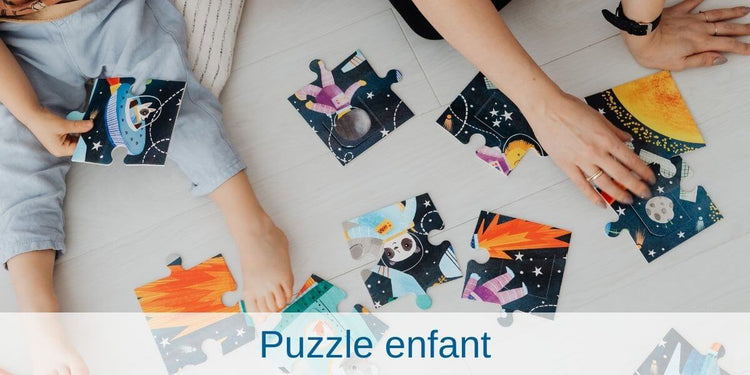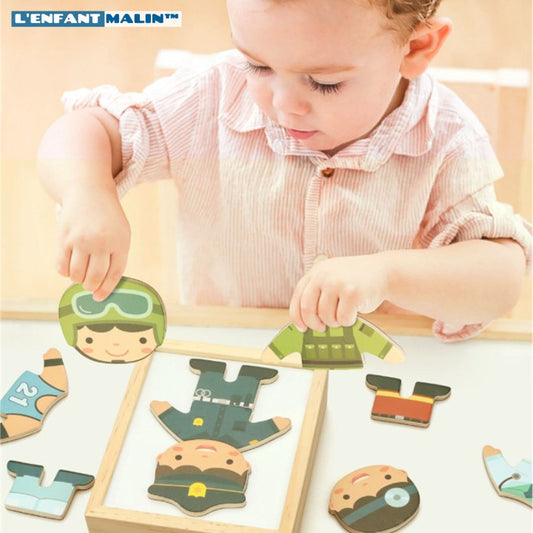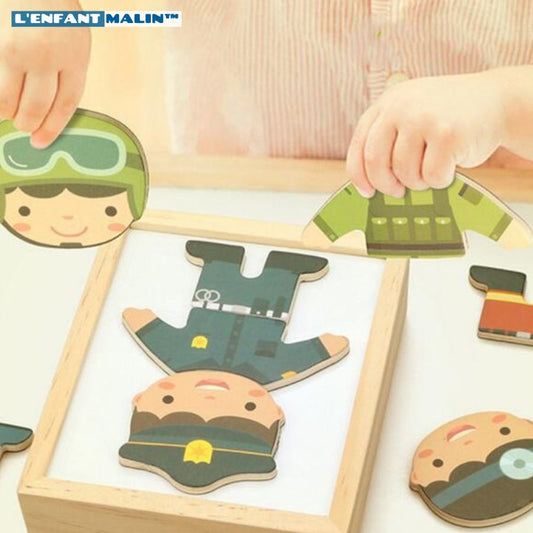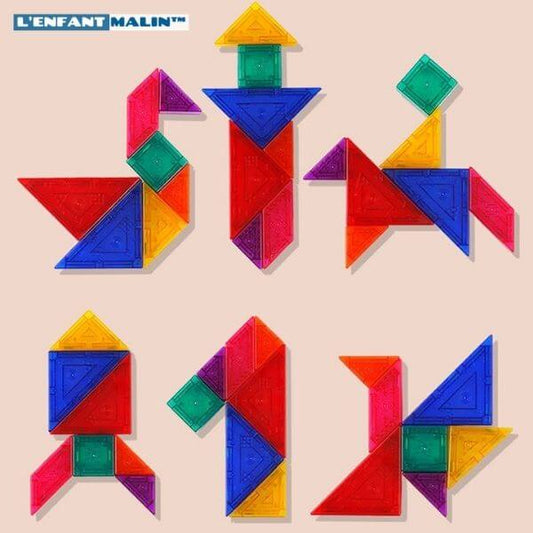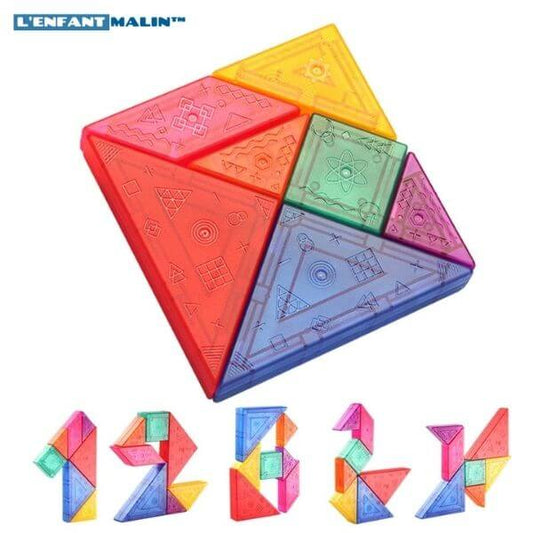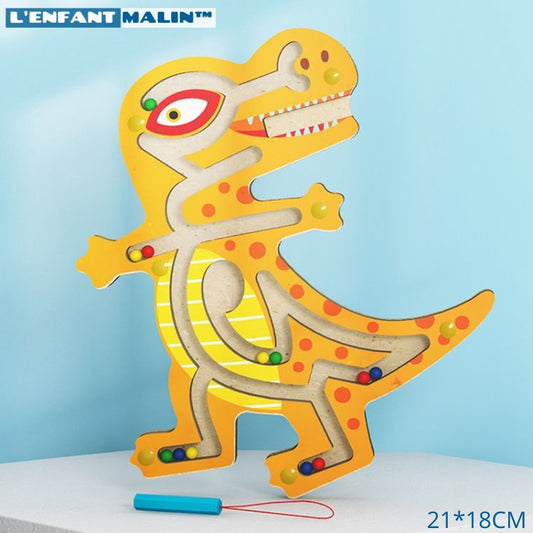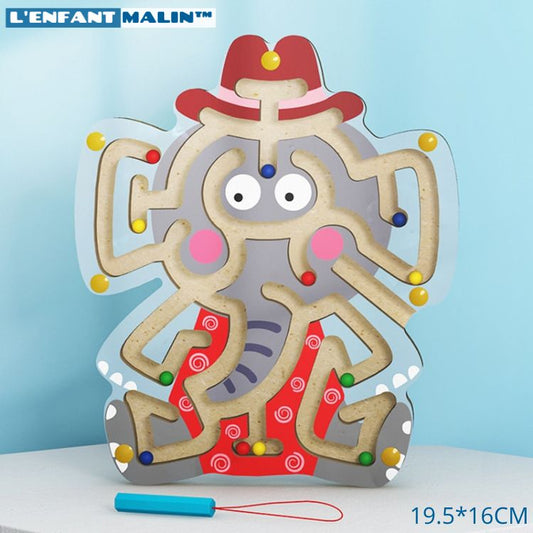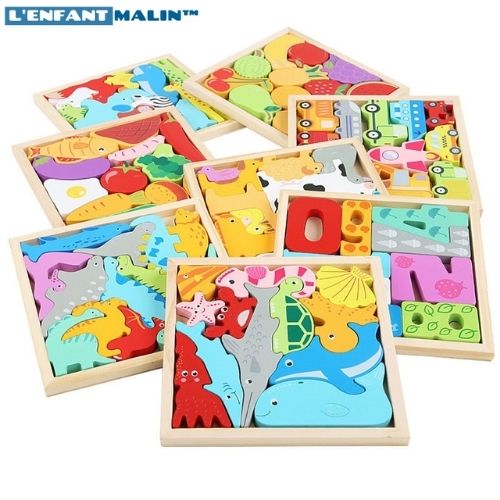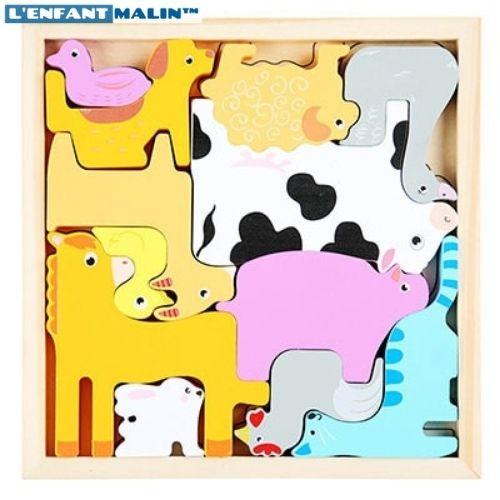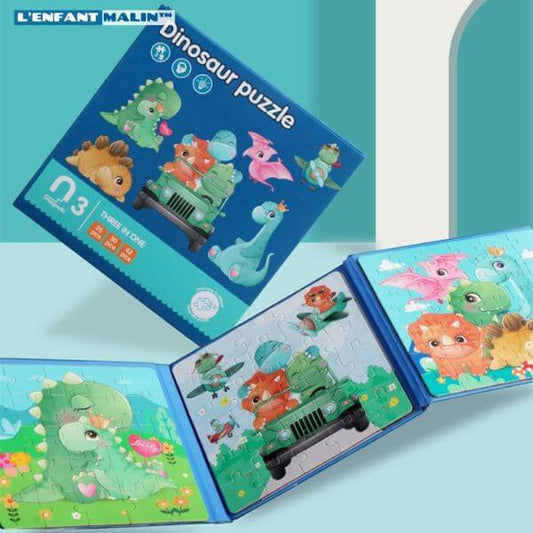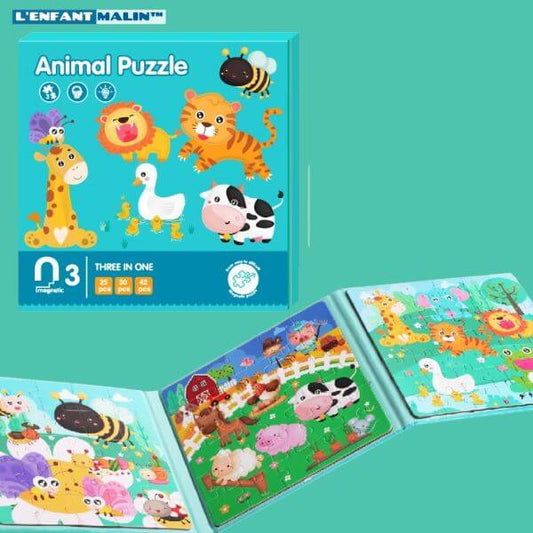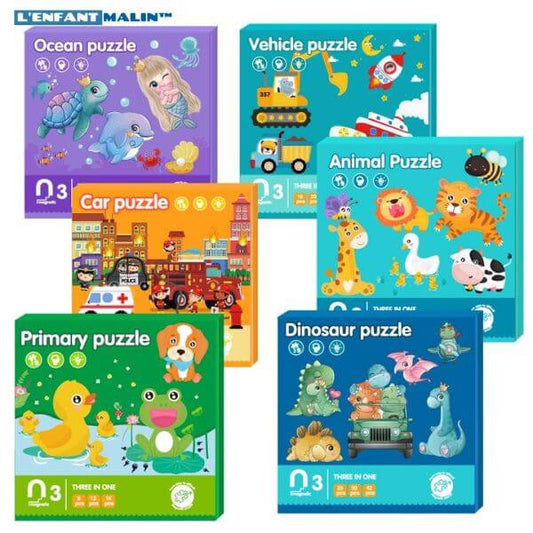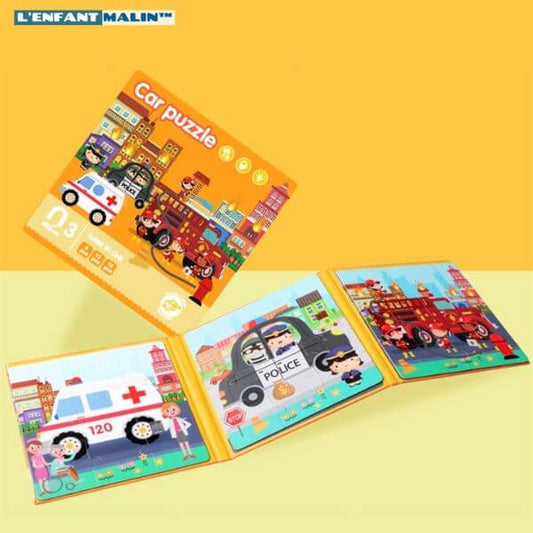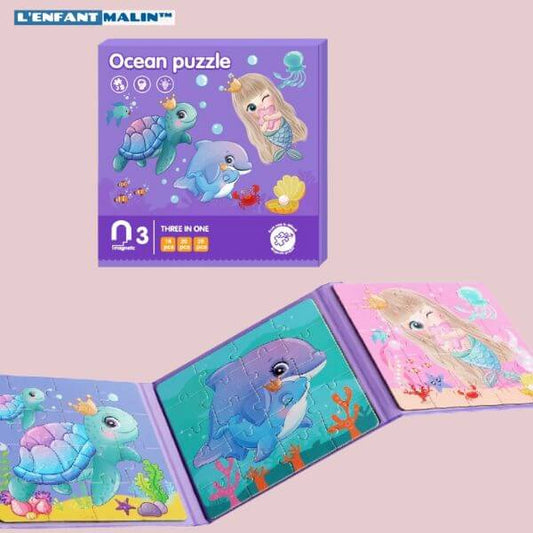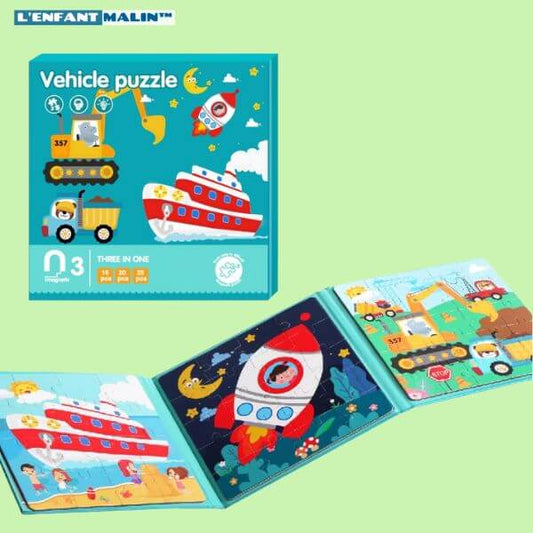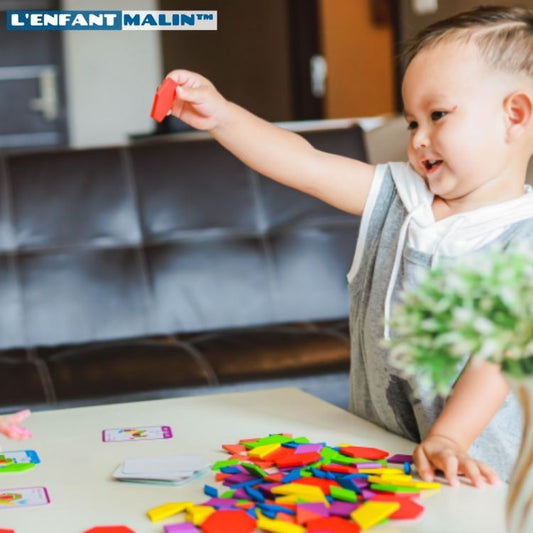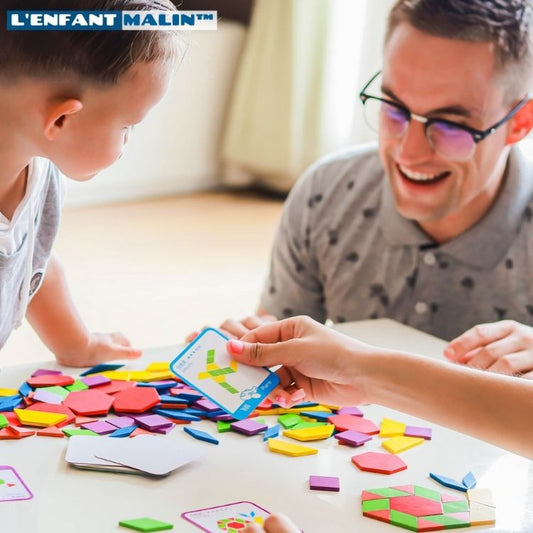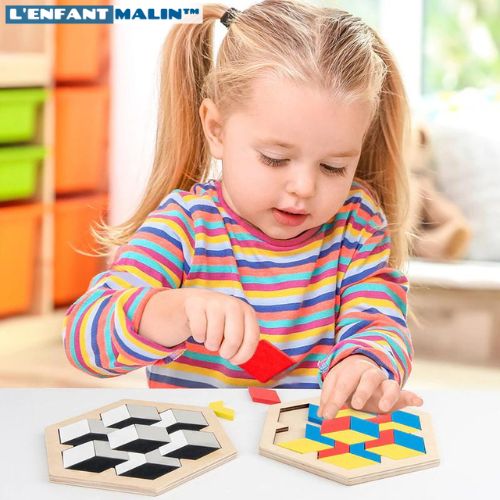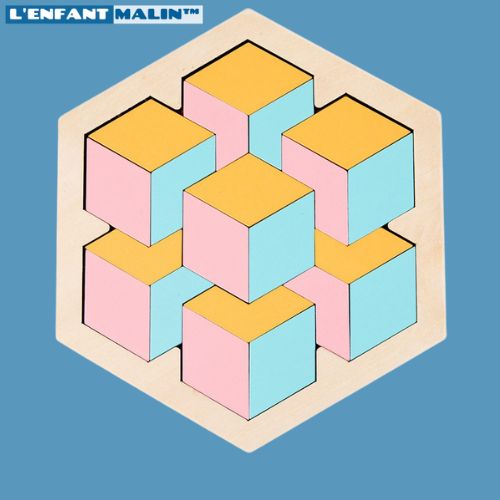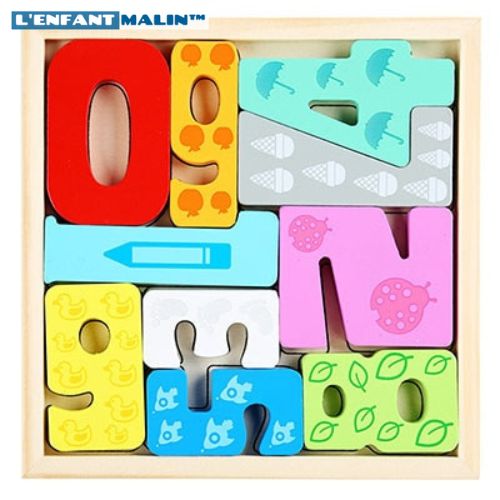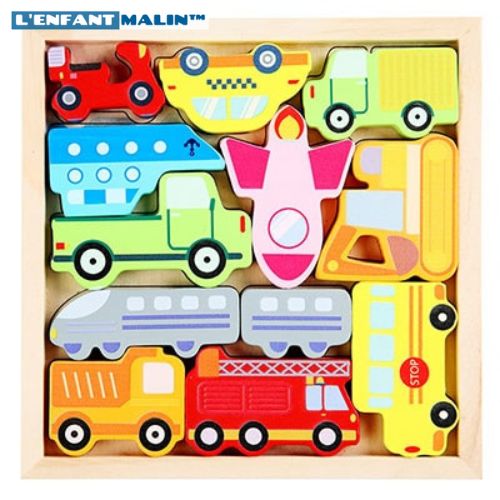SOME FACTS TO KNOW
Here's an interesting fact from the history of puzzles that sheds some light on the universal entertainment value that puzzle-making can bring: In 1933, during the Great Depression, puzzles for adults have seen a peak in popularity, with 10 million puzzles sold per week.
Puzzles are entertaining and educational, they came to our rescue when we needed a cheap and interesting hobby to keep our spirits up and our minds occupied.
THE EDUCATIONAL VALUE OF PUZZLES FOR CHILDREN
Our ancestors realized that a practical approach to teaching children about our society and the world around us will be easier to implement through play. Games and educational toys are therefore about developing more and more and puzzles at the same time!
At a time when technology is profoundly changing our way of life, when the pace of our lives is accelerating, we need something to maintain our attention a little longer and help our brain take a break. This is true for adults and even more so for children.The puzzle is a recognized quality solution.
And while a break for our bodies in most cases means idleness, that couldn't be further from the truth for our brains.Recent studies on puzzles show that they have a significant influence on the brain. Indeed, puzzles have a positive impact on the IQ level of a child developing problem-solving skills.
A PUZZLE FOR EVERY AGE!
From 0 to 2 years - Simple wooden puzzle 1 piece with the objective of discovering colors and shapes only. When baby begins to understand the piece and the concept, wooden puzzles of up to 3 pieces are recommended.
From 2 years to 4 years - Puzzles of 3 pieces, 8 or even 12 pieces are recommended. Images of animals and people are often the most popular at this age.
From 4 years to 6 years - The child's problem-solving skills and patience develop more and more. It's time to set him some little puzzle challenges that are a little more complex in terms of shapes and images. Minimum of 16 pieces up to 50 pieces.
From 6 years to 8 years - It is from this age that the parent can also begin to really participate in these children's puzzles with a large number of pieces .
For those over 8 years old - If the child is still passionate about puzzles he will surely be looking for increasingly difficult puzzles with more and more pieces smaller.
Children like puzzles for several reasons mainly linked to their cognitive and emotional development.
First of all, puzzles offer children a playful challenge which stimulates their curiosity and their desire to learn. Their minds are naturally drawn to problem solving, and puzzles provide a fun way to do so.
By solving puzzles, children also develop cognitive skills such as critical thinking, concentration, logic and spatial perception. This helps them improve their ability to solve problems in daily life and face new situations with confidence.
Puzzles also provide a sense of accomplishment when children manage to solve them, boosting their self-esteem and confidence in their skills. They learn perseverance and patience by facing the challenges that puzzles can present, and this helps them develop a positive attitude towards learning.
Finally, puzzles can be a social activity that promotes group play and sharing experiences with friends and family. This strengthens social bonds and allows children to have fun together while developing their social skills.
Overall, puzzles are an educational and entertaining activity that stimulates children's overall development and nurtures their natural curiosity about the world around them.
Discover one of our many articles on the subject: Children's puzzle, a top educational game?
